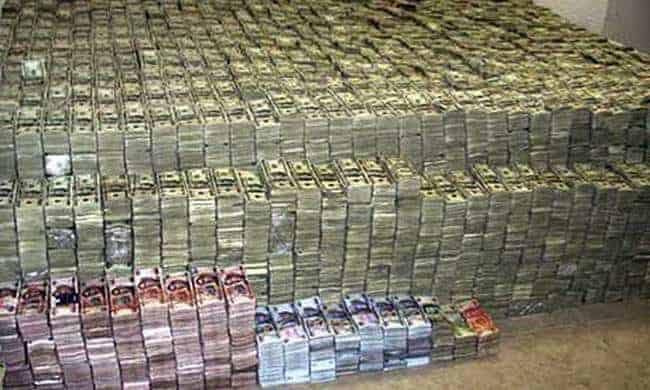
All too often slavery in some of its more contemporary manifestations – human trafficking, the exploitation of migrant workers, the buying and selling of women and girls into the sex trade – is considered a labour or human rights issue. Ultimately, though, modern-day slavery is at heart a booming economy – a thriving business in human life.
Unless this discrepancy is recognised and addressed in the same way as other global crimes, such as those involving drugs and arms, there is no hope of combating the issue.
Legislation is in place to try to curtail modern-day slavery, a multibillion-dollar industry that operates almost entirely by cash and is estimated by the International Labour Organisation (ILO) to earn profits of $32bn each year (pdf). However, while a number of conventions and laws have been passed internationally in the past 10 years to try to stop the business – such as the Council of Europe convention, 2005 (pdf) and the EU directive on trafficking, 2011 – there is no consistent will to implement these measures fully or support them with proper budgets.
Across the board, there has been a fundamental failure to address the reality of modern-day slavery – an estimated 21 million people are trapped in some form.
UN member states and the UN Office on Drugs and Crime do not effectively implement the UN convention against human trafficking, signed in Palermo in December 2000, which could be making a real difference in combating the issue.
The World Bank could be more insistent in its approach to money laundering across the globe. Although cross-border legislation exists, there seems to be no real push to find out where the cash is being banked and confiscate it.
Due to the scale of human trafficking, we know there are huge profits being made. At the same time, the ILO has estimated that global slavery is responsible for more than $21bn of unpaid wages each year. Yet no one is making consistent strides to confiscate the profits and prosecute the ringleaders profiteering from the sale of human beings. Without strong action, criminals will continue to pursue this crime because of the enormous proceeds.
Let’s turn to the legislation supposedly in place to prevent trafficking and bring the perpetrators to justice.
The US state department’s Trafficking in Persons report, the principal diplomatic tool to engage foreign governments on human trafficking, is based on the Palermo convention, still considered the backbone of global anti-slavery legislation. The convention does not, however, promote true cross-border action, and there is no mention of the recovery of cash from the profits of human trafficking.
The 2005 Council of Europe convention and the 2011 EU directive on trafficking are much stronger. Both have been consolidated and include cross-border prosecutions and recovery of money. Despite this, only limited work has been done to implement them, with the amount of money recovered very small.
Ultimately, no number of declarations will end the business of human trafficking. We need real investment from governments, and the involvement of people who are trained not only to spot human trafficking but also to follow the money.
At the root of all this inaction is a lack of political will to address global slavery. Many governments remain in denial that the problem even exists. Why? Put bluntly, it is because there is no public demand for money to be spent on the issue. Amid the global economic crisis, the 21 million people who remain trapped in slavery are being ignored.
It isn’t only criminals who are profiteering from the trade in human labour. Modern-day slavery is an underground business, intrinsically linked to global supply chains. Individuals and companies are making a huge amount of money out of this business and can make it extremely hard for campaigners and governments to chase the cash back to its true source.
Dealing with the murky links between forced labour and global supply chains is perhaps the only real chance we have of cracking the business of slavery. All private companies should be required to sign up to the Athens ethical principles against human trafficking. By signing this agreement, they will be contributing to the eradication of human trafficking and emphasising that this form of business will not be tolerated.
Conventions and laws have been passed over the past few years – including the British Finance Act – that incorporate strong legislation to combat money laundering. However, more explicit laws on the route of money sourced from human trafficking are needed.
Until the profits of this business are monitored and confiscated, no real progress can be made towards ending human trafficking. Ultimately, it’s only by cutting off the money that we will stop it.
• Mary Goudie is a senior member of the House of Lords and a global advocate for the rights of women and children. She chairs the UN’s women leaders’ council to fight human trafficking


The Black Race should leave babylon now anyway they can for the true sons of ham(the white race) are going under divine destruction Jerimiah ch 50-51 Jerimiah ch50-1 I will send destroying winds (hurricane irma the stephen paddocks n korea iran etc) Total destruction the only solution Jerimiah ch 51 62-64 come back home to Africa now which is really ZION the authentic land of cannan
hollywoodbureau
hollywoodbureau@naacpnet.org
leave americia now The Black Race should leave babylon now anyway they can for the true sons of ham(the white race) are going under divine destruction Jerimiah ch 50-51 Jerimiah ch50-1 I will send destroying winds (hurricane irma the stephen paddocks n korea iran etc) Total destruction the only solution Jerimiah ch 51 62-64 come back home to Africa now which is really ZION the authentic land of cannan
hollywoodbureau
hollywoodbureau@naacpnet.org
Comments are closed.